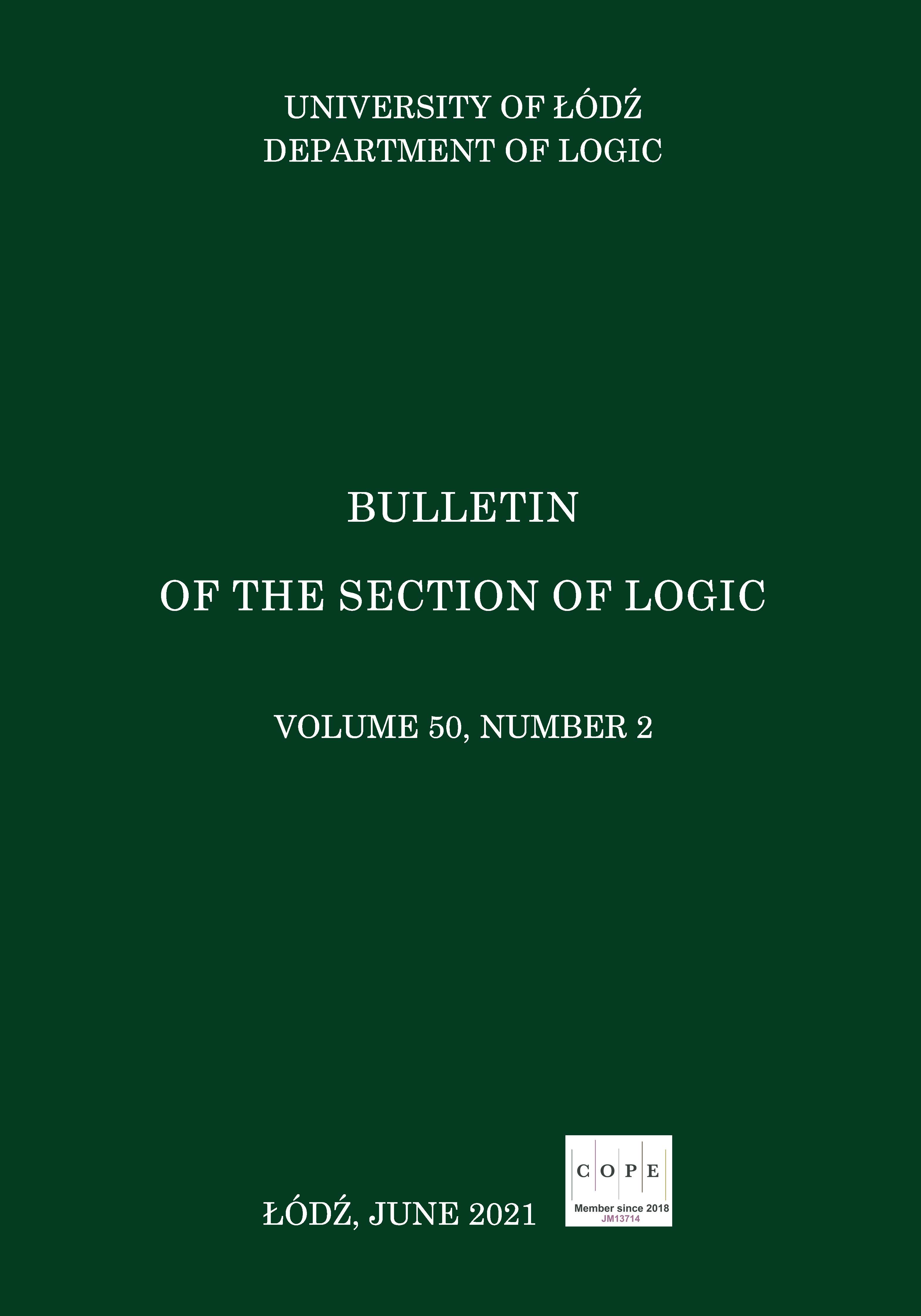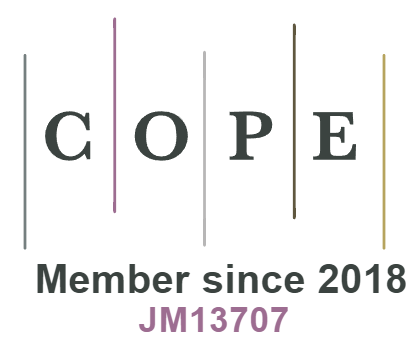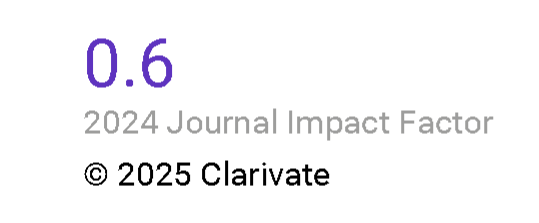Extended MR with Nesting of Predicate Expressions as a Basic Logic for Social Phenomena
DOI:
https://doi.org/10.18778/0138-0680.2021.09Keywords:
logic for social sciences, positional logic, realisation operator, social phenomenaAbstract
In this article, we present the positional logic that is suitable for the formalization of reasoning about social phenomena. It is the effect of extending the Minimal Realisation (MR) logic with new expressions. These expressions allow, inter alia, to consider different points of view of social entities (humanistic coefficient). In the article, we perform a metalogical analysis of this logic. Finally, we present some simple examples of its application.
References
[1] F. Bianchi, F. Squazzoni, Agent–based Models in Sociology, WIREs Computational Statistics, vol. 7 (2015), pp. 284–306, DOI: http://dx.doi.org/10.1002/wics.1356
Google Scholar
DOI: https://doi.org/10.1002/wics.1356
[2] M. Gianluca, Agent–based Models and Methodological Individualism: Are They Fundamentally Linked?, L’Année Sociologique, vol. 70(1) (2020), pp. 197–229, DOI: http://dx.doi.org/10.3917/anso.201.0197
Google Scholar
DOI: https://doi.org/10.3917/anso.201.0197
[3] G. C. Homans, Social Behavior: Its Elementary Forms, no. 40 in Social Forces, Harcourt, Brace and World, Inc., New York (1961), DOI: http://dx.doi.org/10.2307/2574301
Google Scholar
DOI: https://doi.org/10.2307/2574301
[4] T. Jarmużek, A. Parol, On Some Language Extension of Logic MR: A Semantic and Tableau Approach, Roczniki Filozoficzne, vol. 68(4) (2020), pp. 345–366, DOI: http://dx.doi.org/10.18290/rf20684-16
Google Scholar
DOI: https://doi.org/10.18290/rf20684-16
[5] T. Jarmużek, A. Pietruszczak, Completenes of Minimal Positional Calculus, Logic and Logical Philosophy, vol. 13 (2004), pp. 147–162, DOI: http://dx.doi.org/10.12775/LLP.2004.009
Google Scholar
DOI: https://doi.org/10.12775/LLP.2004.009
[6] D. Jemielniak, Socjologia 2.0: o Potrzebie Łączenia Big Data z Etnografią Cyfrową, Wyzwaniach Jakościowej Socjologii Cyfrowej i Systematyzacji Pojęć (Sociology 2.0: On the Need to Combine Big Data with Digital Ethnography, the Challenges of Qualitative Digital Sociology, and Definitions’ Systematization), Studia Socjologiczne, vol. 229(2) (2018), pp. 7–29, DOI: http://dx.doi.org/10.24425/122461
Google Scholar
[7] J. Malinowski, K. Pietrowicz, J. Szalacha-Jarmużek, Logic of Social Ontology and Łoś Operator, Logic and Logical Philosophy, vol. 29 (2020), pp. 239–258, DOI: http://dx.doi.org/10.12775/LLP.2020.005
Google Scholar
DOI: https://doi.org/10.12775/LLP.2020.005
[8] R. Maris, The Logical Adequacy of Homans’ Social Theory, American Sociological Review, vol. 35(6) (1970), pp. 1069–1081, DOI: http://dx.doi.org/10.2307/2093383
Google Scholar
DOI: https://doi.org/10.2307/2093383
[9] D. O’Sullivan, M. Haklay, Agent–Based Models and Individualism: Is the World Agent–Based?, Environment and Planning A: Economy and Space, vol. 32(8) (2000), pp. 1409–1425, DOI: http://dx.doi.org/10.1068/a32140
Google Scholar
DOI: https://doi.org/10.1068/a32140
[10] F. Znaniecki, The Object Matter of Sociology, American Journal of Sociology, vol. 32 (1927), pp. 529–584, DOI: http://dx.doi.org/10.1086/214184
Google Scholar
DOI: https://doi.org/10.1086/214184
Downloads
Published
How to Cite
Issue
Section
License

This work is licensed under a Creative Commons Attribution-NonCommercial-NoDerivatives 4.0 International License.















